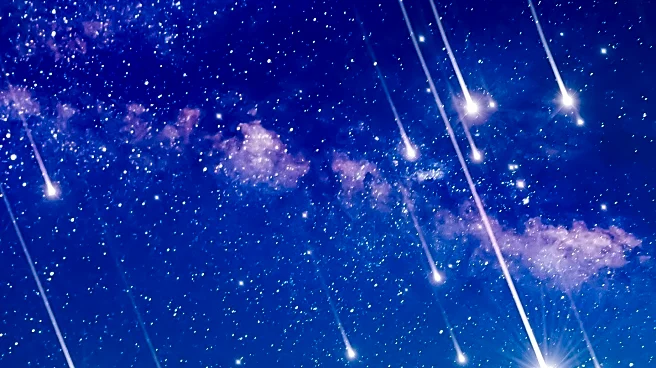What's Happening?
Singapore, despite its urban landscape, offers opportunities to observe various astronomical events. These include meteor showers, lunar and solar eclipses, supermoons, and planetary alignments. The Draconid meteor shower is expected from October 7-10, 2025, providing a cosmic light show visible from the ground. Supermoons, which appear larger and brighter, occur several times a year, with the next one on October 7, 2025. Lunar eclipses, where Earth's shadow covers the Moon, are less frequent, with the next total eclipse on March 3, 2026. Solar eclipses, rarer in Singapore, will have a partial occurrence on August 2, 2027. These events can be observed from locations with minimal light pollution, such as parks and beaches.
Why It's Important?
Observing astronomical events in Singapore is significant for educational and recreational purposes. These events offer a chance for residents and visitors to engage with science and nature, fostering interest in astronomy. They also provide unique opportunities for community gatherings and cultural activities centered around stargazing. The visibility of such events in an urban setting highlights the importance of preserving dark skies and reducing light pollution. Additionally, these occurrences can inspire scientific curiosity and promote awareness of celestial phenomena, contributing to broader scientific literacy and appreciation.
What's Next?
The upcoming Draconid meteor shower and supermoon in October 2025 will likely attract stargazers and astronomy enthusiasts. Observatories and science centers may organize events and workshops to educate the public about these phenomena. As the dates approach, weather conditions will be crucial for optimal viewing experiences. Community groups and educational institutions might plan activities to coincide with these events, enhancing public engagement. Future eclipses and meteor showers will continue to offer opportunities for scientific exploration and public interest in astronomy.
Beyond the Headlines
The observation of astronomical events in Singapore underscores the intersection of urban living and natural phenomena. It raises awareness about the impact of light pollution on stargazing and the importance of environmental conservation. These events can also serve as a reminder of the vastness of the universe and humanity's place within it, encouraging philosophical and cultural reflections. The rarity of some events, like total solar eclipses, highlights the need for long-term planning and anticipation, fostering a sense of community and shared experience.








